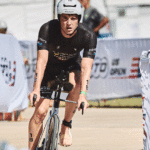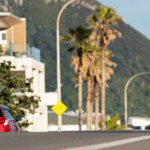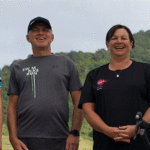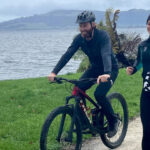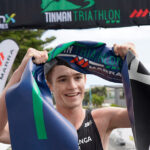By Kent Gray/Triathlon.kiwi
Kiwi co-founders James Elvery and Dylan McNiece believe their drafting detection system ‘RaceRanger’ has the potential to do for triathlon what Hawkeye has done for tennis.
After seven years in development, the innovative tech solution from Precision Triathlon Systems will be trialled for the first time in competition at Saturday’s Tauranga Half.
It will be a particularly poignant moment for McNiece who won the showpiece event of the Fulton Hogan Mount Festival of Multisport as recently as 2018.
Created by Elvery and McNiece in collaboration with the World Triathlon Sport department, RaceRanger is an electronic sensor system designed to remove subjective naked-eye judgements by athletes and technical officials in non-drafting triathlons.
“We are thrilled to finally bring RaceRanger into the real world this week,” said Elvery who doubles as Precision Triathlon Systems’ CEO.
“It is our long-held and firm belief that RaceRanger will fundamentally change our sport for the better, improving transparency around the drafting rules and removing subjective guesses by both athletes and officials. Using RaceRanger for the first time really is one of those technological advancements that just make immediate sense to the users, and it is hard to imagine going back to the ‘old way’.”
RaceRanger comprises two electronic units that triathletes attach to their bicycles, one at the front and one at the rear.
The system uses a combination of Bluetooth and Ultra-wideband technologies to measure the distance between the bikes with a high degree of accuracy. The rear unit features three coloured lights that signal to a following competitor, providing information about their following distance.
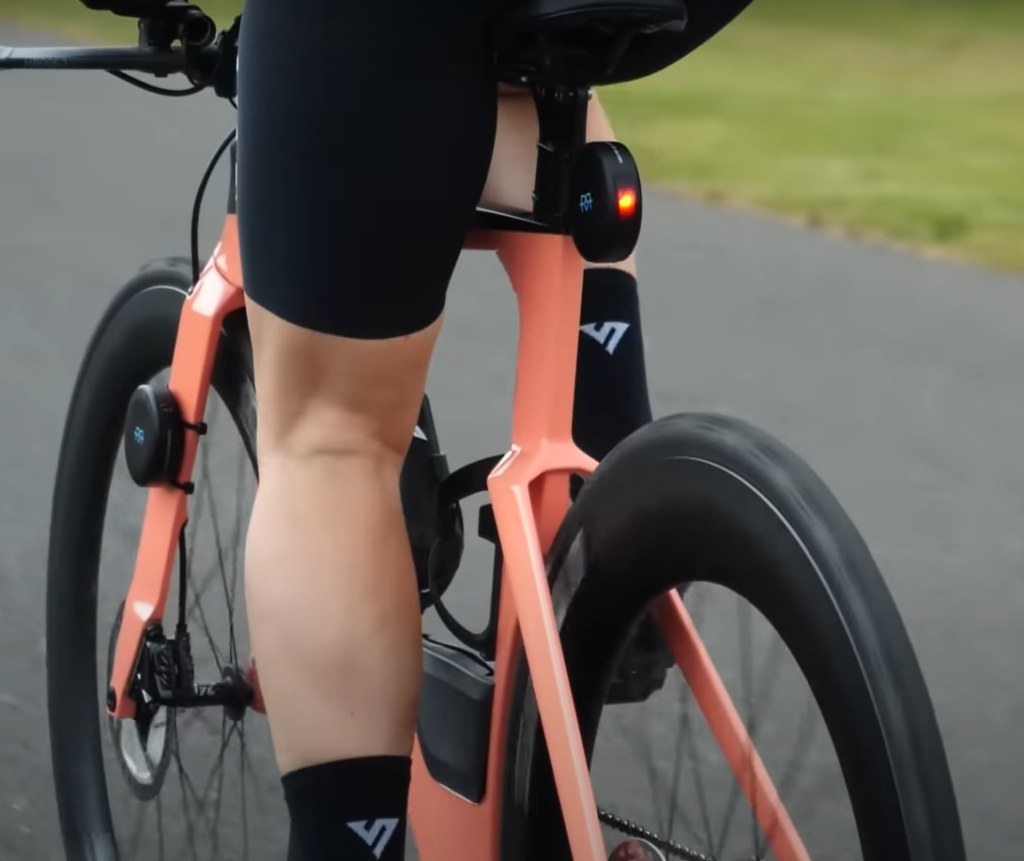
In future, the system will detect when infringements are occurring and send this data to technical officials patrolling the course, via a tablet app interface. The official will assesses the situation in real time and can then make a decision on whether a penalty needs to be applied through the system.
“Literally years of work and countless hours from our team and partners have gone into getting us here,” Elvery said.
“While the system is not yet fully operational and 100 percent polished, we feel it is important to get it in the hands of athletes as early as possible. In sport, as in product development, there is nothing like a race to accelerate progress.“
RaceRanger devices will be fitted to all 24 elite athlete’s bikes before Saturday’s event. Triathlon New Zealand and World Triathlon technical officials, along with the athletes themselves, will evaluate its performance and provide feedback to the RaceRanger team to aid its continued development.
Further race trials are planned throughout the New Zealand summer. After evaluating the first pilot, World Triathlon and the RaceRanger team will work on implementing the devices in major international non-drafting events.
“We at World Triathlon are always committed to making the athlete experience better, providing new technologies that will increase the fairness of the competition for all athletes, especially the ones competing in longer distance formats,” said World Triathlon President and IOC Member, Marisol Casado.
Despite just now being in initial competition trials, RaceRanger has been shortlisted as a finalist for the Outstanding Tech Product category at the inaugural Global Triathlon Awards to also be held this weekend in Nice, France.
